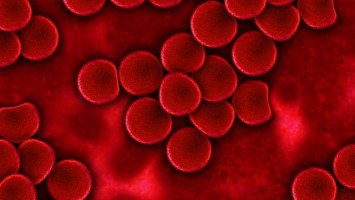
Researchers from the University of Helsinki and HUS investigated the effects of recurring mutations in the KLHL6 gene in diffuse large B-cell lymphoma, the most common cancer of the lymphatic system.
Found in the journal, Blood Cancer Discovery.
The KLHL6 protein is part of a cellular system tasked with disposing of excess and unnecessary proteins.
In many cancers, this system is disrupted, which advances malignant growth.
The researchers found that the KLHL6 protein breaks down the B-cell receptor and demonstrated that certain mutations lead to an increase in the number of these receptors.
“The B-cell receptor is an antibody on the surface of B-lymphocytes and a tool with which normal cells identify pathogens and fight against them. In corrupted cells, the B‑cell receptor is activated in an anomalous manner, resulting in tissue growth and the development of lymphoma,” says Doctoral Researcher Leo Meriranta, MD, from the University of Helsinki.
Absence of KLHL6 protein predicts poor treatment outcomes
In some of the cancer patients enrolled in the study, the KLHL6 protein was entirely absent from cells.
Laboratory modelling revealed that the loss of KLHL6 in lymphoma cells increased the number of B-cell receptors manifold.
Professor of Oncology Sirpa Leppä, who heads the research group, emphasises the clinical significance of KLHL6.
“The lymphoma cases where the KLHL6 protein was absent were associated with a poor prognosis. The identification of pathogenic mechanisms relevant to these patients is particularly important for improving their prognoses through drug development,” Leppä says.
Importance of therapy tailoring increasing
A British-American research group also reported similar findings simultaneously with the researchers from the University of Helsinki and HUS.
“The similar results obtained with different study designs are a solid indication that KLHL6 protein disruption plays a key role in some B-cell diseases,” Meriranta says.
He emphasises that, in the future, treatment outcomes can be improved by targeting therapies on the basis of cancer biomarkers.
“The new findings open avenues to tailoring therapies, as the abnormal amount and activity of the B-cell receptor can be targeted pharmacologically. However, more research is still needed,” Meriranta notes.
Diffuse large B-cell lymphoma
Source: University of Helsinki